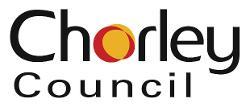Economic Strategy 2022
Big Issues
1. Local centres
The borough appears to be recovering well post Covid, particularly Market Walk which has seen footfall increase from less than 100,000 per month in April 2020 to almost 220,000 in January 2022. Although vacancy rates are tracking around a similar level to average North West figures, there are some key outlets outside of market walk that remain vacant. A pre-Covid shift towards lifestyle and entertainment outlets has mitigated the worst of the retail decline with scope to now progress more conversion to residential use, incorporating a growing trend towards green/low carbon living. Economic centres outside of Chorley (e.g. Adlington and Eccleston) are seeing increased footfall, reflecting possible behaviour changes as residents shop 'hyper-local'.
Opportunity
Continue to build on the recovery by supporting local traders, creating an attractive proposition and defining a clear plan for the future of the town centre that supports our wider economic development and growth aspirations.
2. Productivity
Chorley has seen positive growth in enterprises from 4360 in 2019 to 4655 in 2022, particularly micro businesses with fewer than 4 employees. This is a 6.77% increase compared to 1.69% for the North West and 1.55% nationally. Council-led business support focused on entrepreneurialism (marketing, HR for small businesses, social media) has been very popular over the last 12 months and will encourage new businesses sustainability. Chorley has a mixture of small, medium and larger businesses which will require a tailored approach to respond to specific needs and requirements; process automation and digital capability is a strong cross cutting theme from business feedback. Climate change remains a high priority for the borough with all businesses needing to reduce emissions and improve their environmental credentials by making best use of natural resources
Opportunity
Align Council action and assistance to meet the new and emerging needs of businesses, working collaboratively with the sector and partners to achieve our ambition with a focus on innovation and new technology. Support businesses to adapt to climate change and maximise investment and jobs linked to the green economy.
3. Communities
Chorley is a relatively affluent borough however pockets of deprivation remain. Although overall deprivation is lower than 2015, it has become more concentrated to certain areas, further widening inequalities. The employment rate in Chorley has been maintained at the same level as last year and the number of people claiming out of work benefits has reduced compared to last year, although still higher than 2020 and aligned to areas of deprivation. The ongoing cost of living crisis will further widen the gap within our communities.
Opportunity
Work with our partners to take a more targeted approach to identifying and supporting key groups using our local intelligence and insight.
4. Jobs and skills
Residents of Chorley, particularly young people, are well qualified however job density stats suggest a lower number of jobs per resident than at the regional level (0.63 compared to 0.82 for the North West) and that residents working outside the borough earn significantly more. This has the potential to be exacerbated by agile working and 'brain drain'. Chorley has the highest forecast labour market growth in Lancashire but employers tell us that skills don't match business need, particularly in advanced manufacturing/green/technical sectors.
Opportunity
Proactively build clear links between job creation and future skills development in Chorley, working with our local education and training providers.
5. Land and assets
Inward investment activity in recent years has encouraged businesses to locate in Chorley. Businesses have told us that they want to remain and grow within Chorley so space to support existing businesses and further investment is now a critical issue. Large areas of Chorley are protected to maintain the borough as an attractive place to live. Looking ahead the emphasis will be on working with individual businesses to understand requirements and developing tailored solutions. At a regional level, the council will need to use policy levers, including the Local Plan, and county influence to maximise opportunities for business in Chorley.
Opportunity
Through the Local Plan, make the best use of existing land and assets to deliver high quality future-proof green spaces and places; be creative in developing new solutions and using our collective influence to create opportunities.
6. National economic conditions
Following the removal of Covid-19 restrictions, the UK experienced positive growth with high job vacancies and employment expansion. However recent forecasts suggest that a downturn may be imminent due to the cost of living crisis and high levels of inflation. Economic activity in Chorley is mainly related to service and professional industries although there has been substantial growth in transport, food and storage categories which may be more vulnerable to economic shocks. National and regional financial assistance may be subject to change in response to the wider context, therefore it's important that Chorley has a clear strategic direction that is flexible to changing conditions.
7. Levelling Up and Devolution
Although not identified in the Levelling Up White Paper, Lancashire continue to work on a single voice through the Greater Lancashire Plan which looks to link growth, infrastructure, communities and the environment. The UK Shared Prosperity Fund is one of a number of funds supporting the Levelling Up agenda. The fund focuses on 3 key themes: Communities and Place, Supporting Local Businesses, People and Skills. Funding of £4.2m over 3 years has been allocated to Chorley in line with an approved investment plan.
Opportunity
Be clear on our strategic priorities and regularly review our objectives and actions to address emerging issues.




